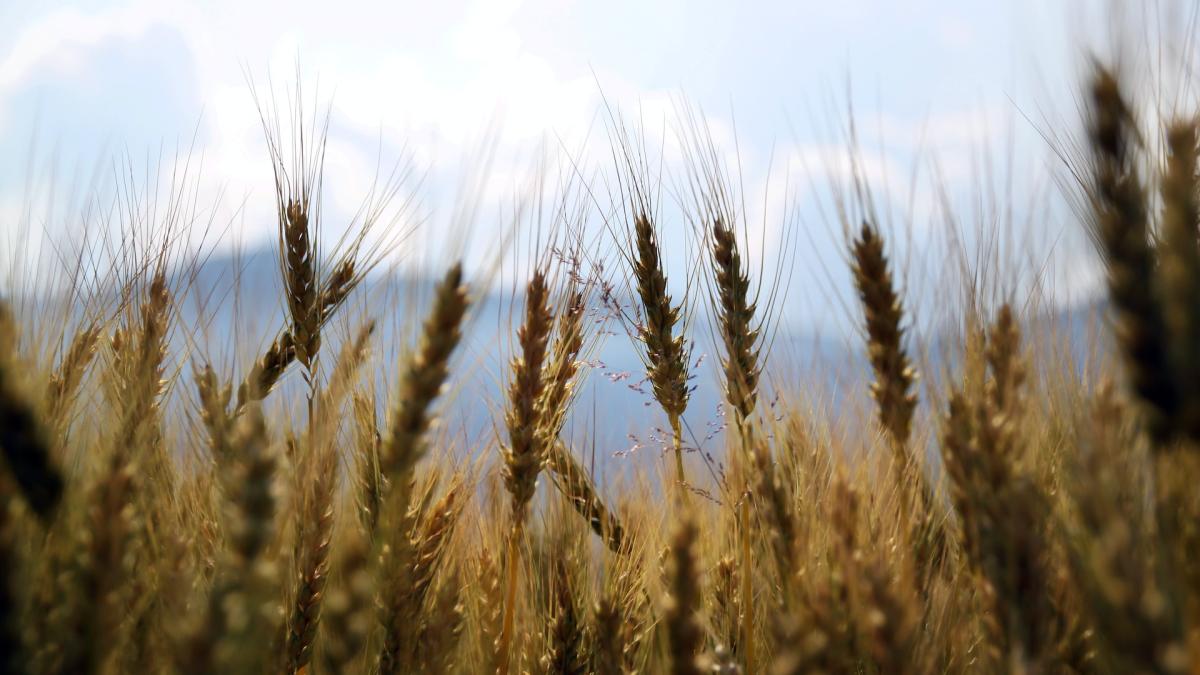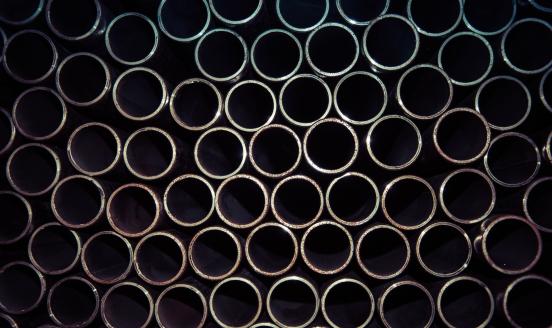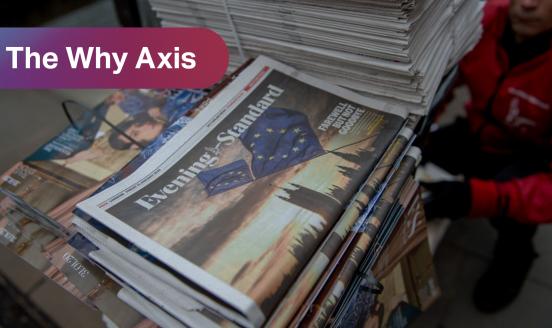Between a rock and a hard place: the EU response to national import bans on Ukrainian grain
The European Commission had to choose between imperfect alternatives because of frontline state backlash against massive Ukrainian grain imports.

In mid-April, several ‘frontline’ European Union member states unilaterally banned (Poland, Hungary, Slovakia and Bulgaria) or threatened to ban (Romania) imports of certain agricultural products from Ukraine, citing the need to protect their own farmers against low prices. In response, on 2 May, the European Commission adopted an exceptional, temporary and preventative safeguard measure 1 See 'Commission Implementing Regulation (EU) 2023/903 of 2 May 2023 introducing preventive measures concerning certain products originating in Ukraine', 2 May 2023, available at https://eur-lex.europa.eu/legal-content/EN/TXT/PDF/?uri=CELEX:32023R0903 , replacing the national import bans and restricting the import of Ukrainian wheat, maize, rapeseed and sunflower seed to those five countries, while allowing transit of the products to the rest of the Union and third countries. The measure ran initially to 5 June but has been prolonged until 15 September 2 See ‘EU extends trade benefits for Ukraine,’ press release, 5 June 2023 available at https://ec.europa.eu/commission/presscorner/detail/en/IP_23_3059 , alongside an extension to Ukraine of duty-free, quota-free EU market access.
The unilateral import bans beg an EU legal justification because, in principle, EU primary law requires the achievement of uniformity of measures of liberalisation vis-à-vis third countries (Article 207 TFEU). The relevant EU secondary law giving effect to the EU Common Commercial Policy principles enshrined in Article 207 TFEU, moreover, per se prohibits the application of quantitative restrictions to imports from third countries (Article 1(2) EU Regulation 2015/478 on Common Rules for Imports 3 See 'Regulation (EU) No 2015/478 of the European Parliament and of the Council of 11 March 2015 on common rules for imports (codification)', 27 March 2015, available at https://eur-lex.europa.eu/legal-content/EN/TXT/PDF/?uri=CELEX:32015R0478 ).
Article 24 of the same Regulation, however, codifies exceptions to the rule, stating that “this Regulation shall not preclude the adoption or application by Member States of prohibitions, quantitative restrictions or surveillance measures on grounds of public morality, public policy or public security, the protection of health and life of humans, animals or plants.” In that context, Poland’s agriculture minister has justified the Polish import ban with reference to a “security provision”, while Slovakia banned imports of Ukrainian grains on the basis of health concerns 4 See ‘Slovakia bans Ukrainian grain imports after finding unauthorised pesticide’, in EURACTIV, 18 April 2023, available at https://www.euractiv.com/section/politics/news/slovakia-bans-ukrainian-… , after finding residues of an unauthorised pesticide in a shipment of Ukrainian wheat that was not destined for the EU market.
It is important to note that the objectives protected by this provision have in the past been interpreted very narrowly by the EU Court of Justice 5 See 'Commission Notice Guide on Articles 34-36 of the Treaty on the Functioning of the European Union (TFEU) (Text with EEA relevance) (2021/C 100/03)', 23 March 2021 available at https://eur-lex.europa.eu/legal-content/EN/TXT/PDF/?uri=CELEX:52021XC03… . Unilateral import restrictions imposed by EU countries are, moreover, typically subject to the Court’s proportionality test. And while it is highly unlikely that the justifications for unilateral bans offered by frontline country governments would survive a legal challenge brought to the Court in Luxembourg, the European Commission did not publicly question the proportionality of the measures. Instead, the Commission noted that “unilateral measures are not acceptable” while pointing to the exclusive Union competence for Common Commercial Policy. The Commission in fact carefully avoided legal threats and emphasised the necessity of “finding solutions”, a stance criticised by some legal commentators and justified by others 6 See ‘Commission offers sweetener to Poland, Hungary after Ukraine agri import ban’, in EURACTIV, 18 April 2023 available at https://www.euractiv.com/section/agriculture-food/news/commission-offer… .
A second pertinent legal question relates to the legal basis for a Commission safeguard measure that restricts agricultural imports from Ukraine for five ‘frontline’ countries, but maintains duty-free and quota-free market access to the rest of the EU. The contradiction with the internal market provisions of Article 26 TFEU is striking. But while the safeguard provisions (Article 4) of the EU Regulation (2022/870) on temporary trade-liberalisation measures for Ukraine do not include explicit details on the regional-only application of safeguard measures within the EU, the concept is set out in the above-cited EU Regulation on Common Rules for Imports. Here, Article 17 provides that “the Commission … may exceptionally authorise the application of … safeguard measures limited to the region(s) concerned if it considers that such measures applied at that level are more appropriate than measures applied throughout the Union.” Such measures, however, “must be temporary and must disrupt the operation of the internal market as little as possible.”
Politically speaking, it is easily understandable why the Commission opted for a regional-only safeguard application: an EU-wide measure would have entirely nullified Ukraine’s benefits from duty-free, quota-free agricultural market access, granted under the EU’s temporary trade-liberalisation measures for Ukraine 7 See ‘Regulation (EU) 2022/870 of the European Parliament and of the Council of 30 May 2022 on temporary trade-liberalisation measures supplementing trade concessions applicable to Ukrainian products under the Association Agreement between the European Union and the European Atomic Energy Community and their Member States, of the one part, and Ukraine, of the other part', 30 May 2022, available at https://eur-lex.europa.eu/legal-content/EN/TXT/PDF/?uri=CELEX:32022R087… for the products concerned.
It is also easily understandable why the Commission has been careful to avoid legal threats to the frontline states and has instead devised a set of financial 8 See ‘€100 million to support farmers from Bulgaria, Hungary, Poland, Romania and Slovakia’, Press release, 3 May 2023, available at https://agriculture.ec.europa.eu/news/eu100-million-support-farmers-bul… , logistical and infrastructural support, as well as import-restrictive measures benefitting the five front-line states. The massive import surges into the frontline states resulted from EU-wide policies establishing ‘Solidarity Lanes’ 9 See ‘European Commission to establish Solidarity Lanes to help Ukraine export agricultural goods’, press release 12 May 2022, available at https://transport.ec.europa.eu/news-events/news/european-commission-est… via the European inland route for Ukrainian agricultural exports that are otherwise shipped from the Black Sea ports, and from the temporary duty-free, quota-free market access granted under above-mentioned EU regulation. In 2022, Poland alone 10 See ‘Explainer: Why the EU is restricting grain imports from Ukraine’, in Reuters, 9 May 2023, available at https://www.reuters.com/markets/commodities/why-eu-is-restricting-grain… received 2.08 million tonnes of Ukrainian corn, 579,315 tonnes of wheat and 44,114 tonnes of barley, compared to 6,269 tonnes of corn, 3,033 tonnes of wheat imports and no barley at all the previous year. It also clear that the European Commission was slow to respond to what was a predictable challenge and resulting crisis. After the heads of governments of the five frontline states wrote on 31 March urging action, it took the Commission President three weeks and four member state import bans to even reply.
Common sense suggests that the pressures on prices, infrastructure and logistics should be shouldered by the EU as a whole, instead of being litigated by the Court in Luxembourg. The provisional safeguard adopted by the Commission and flanking support measures give justice to this notion for the time being. The ultimate benchmark of success will be whether or not the Commission’s support measures establish the regional infrastructural and logistical conditions necessary to lift the EU import restrictions altogether. Meanwhile, observers will watch closely whether the rest of the EU will master the challenge of absorbing extraordinary quantities of additional imports and manage the transit to third countries of millions of tonnes of Ukrainian grain.



